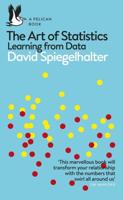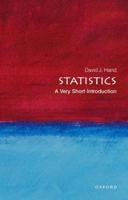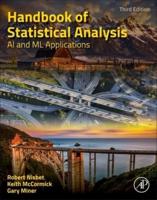Publisher's Synopsis
Causal Inference Made Easy: A Practical Guide to Cause and Effect in Statistics is a comprehensive resource designed to bridge the gap between theoretical understanding and practical application of causal inference. This book offers an accessible yet in-depth exploration of the methods and tools that empower researchers, data scientists, policymakers, and practitioners to uncover and validate cause-and-effect relationships in a wide array of disciplines.
Drawing from diverse fields such as statistics, econometrics, computer science, epidemiology, and social sciences, the book provides a solid foundation in both classical and modern approaches to causal analysis. Readers are guided through fundamental concepts-from understanding counterfactuals and potential outcomes to constructing Directed Acyclic Graphs (DAGs) and applying Structural Causal Models (SCMs)-before delving into advanced topics such as instrumental variables, regression discontinuity designs, synthetic controls, and causal machine learning.
Key features of the book include:
- Foundational Principles and Frameworks:
The early chapters introduce the essential terminology and core concepts of causal inference, establishing a base for understanding how treatments and outcomes are linked within complex systems.
- Methodological Diversity:
With dedicated sections on randomized controlled trials, observational study techniques (such as propensity score matching and difference-in-differences), quasi-experimental designs, and advanced machine learning methods (including double machine learning and causal forests), the book equips readers with multiple strategies to address causal questions in both experimental and non-experimental settings.
- Practical Applications and Case Studies:
Real-world examples from healthcare, epidemiology, economics, finance, and social sciences illustrate how causal inference drives evidence-based decision-making and policy development, guiding the reader through the challenges and triumphs of applying these methods in practice.
- Tools, Reproducibility, and Ethical Considerations:
Chapters on computational tools in R, Python, Stata, and other platforms highlight the importance of reproducible research environments, while discussions on data sharing, ethical principles, and transparency ensure that causal studies are conducted responsibly.
- Future Directions and Interdisciplinary Insights:
The final sections provide a forward-looking perspective on emerging trends, opportunities, and challenges in causal inference. By embracing innovations from machine learning, big data, and dynamic modeling, the book lays out a roadmap for future research while integrating interdisciplinary perspectives that enrich causal analysis.
Whether you are a student embarking on your first causal study, a researcher aiming to advance your methodological toolkit, or a practitioner seeking to implement robust, ethical causal analyses, Causal Inference Made Easy offers practical guidance, detailed case studies, and advanced techniques to help you navigate the complexities of establishing cause and effect.










